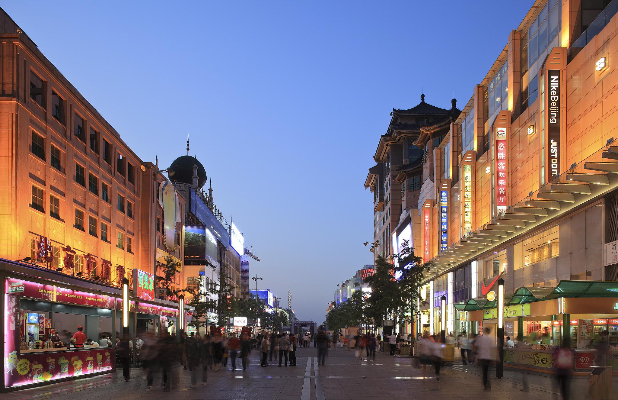Reasons to Move to China: Explore the Rich Culture and Vibrant Lifestyle
Moving to China is an exciting prospect for many individuals seeking to experience a completely different way of life. With its rich cultural heritage, fast-paced economic growth, and vibrant lifestyle, China offers numerous opportunities for both professional and personal growth. Whether you are looking to enhance your career prospects, learn a new language, or immerse yourself in a completely new culture, China has something for everyone.
In this article, we will delve into the reasons why so many people choose to move to China. We will also explore the country’s diverse culture, lifestyle, and the opportunities it presents to expats and international professionals.
1. China’s Economic Boom: A Land of Opportunities

China is often referred to as the world’s factory due to its rapidly growing industrial and technological sectors. Over the past few decades, the country has transformed from a largely agricultural society to the world’s second-largest economy, behind only the United States. This dramatic transformation has created numerous opportunities for both local and foreign professionals.
Job Opportunities in China
China’s thriving economy offers countless career opportunities, particularly in cities like Beijing, Shanghai, and Shenzhen. These cities are home to multinational companies, international organizations, and thriving tech startups, making them ideal for foreign professionals looking to advance their careers.
- Tech Industry: China is home to some of the world’s most innovative tech companies like Alibaba, Tencent, and Huawei. The tech industry is booming, and there is a high demand for skilled workers in fields like software development, data analysis, and artificial intelligence (AI).
- Education and Teaching: With its growing demand for English speakers and international professionals, China’s education sector is also a hotspot for expats. Many foreigners work as English teachers, either in public schools or private language institutes.
- Finance and Business: China is a major global financial hub, particularly in cities like Shanghai and Hong Kong. The finance industry is one of the fastest-growing sectors, offering positions in banking, insurance, and investment management.
Cost of Living and Salary
One of the key reasons expats choose China is the relatively low cost of living compared to major cities in Western countries. While living expenses in Beijing or Shanghai can be high, they are still more affordable compared to New York, London, or Tokyo. Moreover, many companies in China offer competitive salaries, particularly for skilled professionals.
2. Cultural Richness: Discover China’s 5,000-Year-Old History
One of the main draws for expatriates is China’s incredibly rich and diverse cultural history. The country’s history spans over 5,000 years, with influences from Confucianism, Taoism, and Buddhism shaping the way of life. This cultural richness is reflected in Chinese architecture, festivals, art, and cuisine.
Ancient Landmarks and Modern Innovations
China is home to some of the world’s most famous landmarks, such as the Great Wall of China, the Forbidden City, and the Terracotta Army. These historical sites provide an incredible glimpse into China’s past and are major tourist attractions. At the same time, cities like Beijing, Shanghai, and Shenzhen are known for their modern architecture and cutting-edge technological innovations, creating a unique blend of the old and the new.
Festivals and Traditions
Chinese festivals are an important part of the cultural experience for those living in the country. The most famous of these is the Chinese New Year (Spring Festival), a time when families reunite, markets come alive, and people celebrate with fireworks, feasts, and cultural performances. Other significant festivals include Mid-Autumn Festival, Dragon Boat Festival, and Qingming Festival, each with its own unique traditions.
3. Vibrant Lifestyle and Social Scene
Living in China means experiencing a lifestyle that is both fast-paced and deeply rooted in tradition. Chinese cities are filled with life, offering a dynamic mix of old and new. From bustling street markets to high-end shopping malls, from traditional tea houses to modern bars and clubs, China’s lifestyle is vibrant and diverse.
Food Culture
Chinese cuisine is world-renowned for its variety and complexity. Each region has its own distinct culinary style, and the country’s rich food culture can be a major attraction for expats. Whether you’re enjoying Peking duck in Beijing, dim sum in Hong Kong, or hotpot in Chengdu, food is an integral part of daily life in China.
Street food is also a major part of Chinese culture. In cities like Shanghai, Beijing, and Xi’an, you can find food vendors selling everything from dumplings and baozi to skewered meats and fried snacks. For food lovers, China’s food culture is an exciting adventure.
Entertainment and Nightlife
China’s entertainment scene is one of the most vibrant in the world. In large cities, there are numerous entertainment options, ranging from cinemas and theaters to karaoke bars and nightclubs. Beijing and Shanghai, in particular, are known for their thriving nightlife, with a mix of international and local venues catering to diverse tastes.
Moreover, China’s outdoor activities, such as hiking, cycling, and skiing (in places like Harbin), offer something for those who love adventure and the outdoors.
4. Language and Learning: Mastering Mandarin
One of the key challenges, but also a major attraction for many, is learning the Chinese language. Mandarin Chinese is the most widely spoken language in the world, and learning it opens doors to better understanding of China’s rich culture and history.
Learning Mandarin
Mandarin may seem difficult at first due to its tonal nature and characters, but it is a highly rewarding skill. Many expats in China take language courses to improve their Mandarin, and some cities, such as Beijing and Shanghai, have international schools that teach Chinese to foreigners.
Learning Mandarin can significantly improve your experience in China. It helps you connect with locals, navigate the city more easily, and build stronger relationships both personally and professionally.
5. Natural Beauty: Explore China’s Stunning Landscapes
China is a vast country with diverse landscapes, offering something for every outdoor enthusiast. From the majestic Himalayas in the west to the subtropical rainforests in the south, China’s natural beauty is simply stunning.
Mountain Ranges and National Parks
China is home to some of the world’s most breathtaking mountain ranges, including the Himalayas, Kunlun Mountains, and Tian Shan. These regions offer unparalleled opportunities for hiking, trekking, and mountaineering.
National parks like Zhangjiajie, Jiuzhaigou, and Yellow Mountain showcase some of the most picturesque natural scenery in the world, from towering peaks to tranquil lakes and forests.
Coastal and Riverine Beauty
China’s coastline stretches for thousands of miles, offering beautiful beaches and seaside towns. The Yangtze River, the longest river in China, flows through stunning landscapes, while cities along the coast, such as Xiamen and Sanya, offer opportunities for beach lovers.
Frequently Asked Questions (FAQ)
1. What are the requirements for moving to China?
To move to China, you’ll need to secure the appropriate visa, such as a work visa (Z visa), business visa (M visa), or a family visa (Q1). You’ll also need to meet health and security clearance requirements. Once in China, you may need to apply for a residence permit.
2. Is it easy to find a job in China as a foreigner?
Finding a job in China can be competitive, but it is certainly possible, especially in sectors such as technology, education, and finance. Having skills in high-demand fields like software development, business management, or teaching English will improve your chances.
3. Is the cost of living in China affordable?
China is generally more affordable than many Western countries, though the cost of living varies by city. Beijing and Shanghai are expensive, but smaller cities are much more affordable in terms of housing, food, and transportation.
4. How can I learn Mandarin quickly?
Learning Mandarin requires dedication and consistent practice. You can take classes at language schools, use language learning apps like Duolingo, or practice with local speakers. Immersion is one of the best ways to learn quickly.
5. What is the healthcare system like in China?
China offers both public and private healthcare options. While public healthcare is affordable, it may not always provide the same level of service as private healthcare, especially in remote areas. Many expats opt for private health insurance to access higher-quality care.

